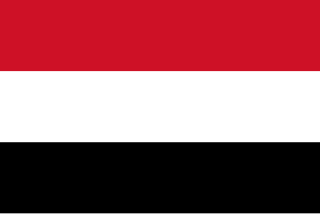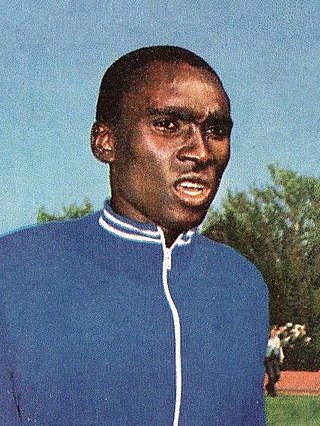
Australia has sent athletes to all editions of the modern Olympic Games. Australia has competed in every Summer Olympic Games, as well as every Winter Olympics except 1924–32 and 1948. In 1908 and 1912 Australia competed with New Zealand under the name Australasia.
At the 1908 Summer Olympics in London, six swimming events were contested. These were the first Olympic Games in which a 100-metre pool had been especially constructed. Previous Olympic events were swum in open water. Only men participated in the swimming events. The competitions were held from Monday, July 13, 1908, to Saturday, July 25, 1908.

France competed at the 1896 Summer Olympics in Athens, Greece, from 6 to 15 April 1896. French athletes had appeared in every Summer Olympic Games of the modern era, alongside Australia, Great Britain, and Greece. France won the fourth-most gold medals with 5 and the fourth-most total medals with 11. Cycling was the sport in which the French competitors had the most success, as they completely dominated the field. The French team had 27 entries in 18 events, winning 11 medals.

The modern Olympic Games were founded by French historian Pierre de Coubertin. France has competed in every edition, with the possible exception of the 1904 Games.

The men's individual all-around, also known as the heptathlon, was one of two gymnastics events on the Gymnastics at the 1908 Summer Olympics programme. As suggested by the alternate name, the competition included seven events with the scores summed to give a final score. Each nation could enter up to 20 gymnasts, with France and Great Britain each entering the maximum. A total of 97 gymnasts from 12 nations competed. The event was won by Alberto Braglia of Italy, the nation's first medal in the men's individual all-around. Silver went to Walter Tysall of Great Britain, the first medal for the nation as well. France's Louis Ségura earned bronze.

Lacrosse has been contested at two editions of the Summer Olympic Games, 1904 and 1908. Both times a Canadian team won the competition. In its first year, two teams from Canada and one team from the United States competed at the games in St. Louis, Missouri. Only two teams, one from Canada and one from Great Britain competed in 1908 in London.

The men's 200 metres was a track and field athletics event held as part of the Athletics at the 1912 Summer Olympics programme. It was the fourth appearance of the event, which has appeared at every edition of the Summer Olympics since the 1900 Summer Olympics. The competition was held on July 10, 1912, and on July 11, 1912. 61 runners from 19 nations competed. NOCs could enter up to 12 athletes. The event was won by Ralph Craig of the United States, the nation's third victory in four Games. Another American, Donald Lippincott, took silver. Great Britain earned its first medal in the 200 metres with Willie Applegarth's bronze.

Brazil first participated at the Olympic Games in 1920, after missing the previous five Summer editions. The country has sent athletes to compete in every Summer Olympic Games since then, except for the 1928 Games. As of 2020, Brazilian athletes have won a total of 150 medals in 18 different Summer sports.

The Philippines has competed in every edition of the Summer Olympic Games since its debut in the 1924 edition, except when they participated in the American-led boycott of the 1980 Summer Olympics. Filipino athletes have also competed at the Winter Olympic Games on five occasions since 1972.

The men's individual road race at the 1996 Summer Olympics in Atlanta, was held on July 31, 1996. There were 183 participants from 57 nations in the race over 221.85 km, with 116 cyclists finishing. For the first time, the event was open to professionals. The maximum number of cyclists per nation was five, up from three in previous editions of the event. The event was won by Pascal Richard of Switzerland, the nation's first victory in the men's individual road race and first medal in the event since a bronze in 1936. Rolf Sørensen earned Denmark's third medal in the event, silver just as in 1964 and 1968. Max Sciandri similarly matched Great Britain's best result: a bronze, as in 1896 and 1956.

The men's 200 metres event was part of the track and field athletics programme at the 1920 Summer Olympics. The competition was held on Thursday, August 19, 1920, and on Friday, August 20, 1920. Forty-eight sprinters from 22 nations competed. Nations were limited to 4 athletes each, down from the 12 allowed in previous Games. The event was won by Allen Woodring of the United States, the nation's second consecutive victory in the event and fourth in five Games. Fellow American Charley Paddock took silver. Great Britain reached the podium for a second consecutive Games with Harry Edward's bronze.

Yemen has only competed at the Summer Olympic Games, sending athletes to every edition since its first participation in 1992. Before the Yemeni unification in 1990, Yemenite athletes had competed at the Games as early as 1984, representing North Yemen or South Yemen. Yemen has not yet won any Olympic medal.

The men's eight event was part of the rowing programme at the 1920 Summer Olympics. The competition was held on 28 and 29 August 1920. It was the fifth appearance of the event. Eight boats, each from a different nation, competed. It was the first time that nations were limited to a single boat. The event was won by the United States in a final against Great Britain; the two nations had taken all four previous gold medals. Bronze went to Norway, the nation's first medal in the men's eight. In addition to gold medals, the winners received a challenge prize that had been donated by Eugenio Brunetta d'Usseaux before his death in 1919.

The men's doubles was a tennis event held as part of the Tennis at the 1920 Summer Olympics programme. It was the sixth appearance of the event. A total of 44 players from 11 nations competed in the event, which was held from 16 to 24 August 1920 at the Beerschot Tennis Club. Nations were limited to four pairs each. The event was won by Noel Turnbull and Max Woosnam of Great Britain, defeating Seiichiro Kashio and Ichiya Kumagae of Japan in the final. It was Great Britain's third victory in the men's doubles, most of any nation. Japan's silver came in its debut in the event. France earned its second consecutive bronze medal as Pierre Albarran and Max Decugis had a walkover in what would have been an all-France bronze-medal match.

The men's 400 metres hurdles was an event at the 1976 Summer Olympics in Montreal. The competition was held from July 23, 1976, to July 25, 1976. There were 22 competitors from 16 nations. The maximum number of athletes per nation had been set at 3 since the 1930 Olympic Congress. American Edwin Moses won the final in a world record and Olympic record time of 47.64 seconds. His time was initially noted as one hundredth slower, but this was rounded up after an analysis of the photo finish. It was the United States' first victory in the event since 1964 and 12th overall. Fellow American Michael Shine took silver. Yevgeniy Gavrilenko earned the Soviet Union's first medal in the event since 1952 with his bronze. Great Britain's three-Games podium streak in the event ended.

The men's 400 metres hurdles was an event at the 1972 Summer Olympics in Munich. The competition was held on 31 August - 2 September. There were 37 competitors from 25 nations. The maximum number of athletes per nation had been set at 3 since the 1930 Olympic Congress. The event was won by John Akii-Bua of Uganda, the nation's first medal in the event and first gold medal in any Olympic event. Ralph Mann returned the United States to the podium after a one-Games absence with his silver medal, while David Hemery added a bronze to his 1968 gold to become the fifth man to earn multiple medals in the event while extending Great Britain's podium streak in the 400 metres hurdles to three Games.

The men's trap was a shooting sports event held as part of the Shooting at the 1952 Summer Olympics programme. It was the sixth appearance of the event. The competition was held on 25 and 26 July 1952 at the shooting ranges in Helsinki. 40 shooters from 22 nations competed. Each nation could have up to 2 shooters. The event was won by George Genereux of Canada, the nation's first victory in the event since 1908. Sweden, which had never before medaled in the men's trap, took two medals this Games, with Knut Holmqvist earning silver and Hans Liljedahl bronze.
This article lists various water polo records and statistics in relation to the Great Britain men's national water polo team at the Summer Olympics.















